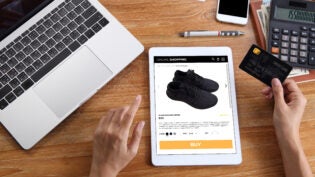7 Ways to Find Current Business Trends for Your Online Store
By: Jennifer Xue

Trends come and go. However, when you own an online store, knowing the latest trends is a must to succeed. The thing is, finding the latest trends can be challenging and, quite often, as soon as you locate the sources of those trending products, they’re no longer in demand.
In this article, we’ll show you where you can find those trending products fast so that you can capitalize on them as soon as possible. While you can choose any of these 7 paths, combining them would result in a more comprehensive understanding of the latest product trends and whether they’d be the best products to carry.
First, check best-selling products on Amazon, eBay, Etsy, and AliExpress.
Check best-selling and favorite products on top e-commerce sites for products that consumers love. Pay attention to the products’ styles, materials, colors, brands, and other unique elements. Next, compare those characteristics with similar products of the past, so you can recognize the differences and, perhaps, why the current ones are trending.
Second, read trend reports.
Trend research firms and e-commerce companies publish the current trends to showcase their thought leadership. Some excellent sources are Trendhunter, Oberlo Trending Products, and SpringWise, where you can find many ideas on the latest product trends.
Third, follow social media influencers.
Influencers have ways to carry themselves favorably among their followers, whether they’re paid or not to wear certain fashion items and use certain products. Following their accounts would allow you to get a glimpse of the latest and trending items and how they’re worn or used. For paid posts, FTC requires #ad and #sponsored hashtags, which can be used to distinguish the intention of the posts.
Fourth, use industry analytics tools.
If you sell on Amazon, consider using search tools like JungleScout to discover best-selling product ideas. If you sell on eBay, ShelfTrend provides an in-depth view on top sellers, their best-selling items, average prices, and the availability of stock. With these analytics tools, you can even find new niches that you haven’t considered previously.
Fifth, use Google Trends.
Google Trends provides the general trending search keywords, not necessarily on trending products. However, occasionally, some product names hit the top of the trends. You can expect to find brand names among highly-searched terms as well. While the “trends” aren’t as specific as in trend reports, you can expect to have a general idea of the world’s current conversations.
Sixth, browse magazines.
Browse popular consumer and hobby magazines for the latest featured items. Most magazines have at least several pages of the newest products to showcase to their readers. Also, celebrities and other famous individuals are likely setting trends as well. Thus, pay close attention to featured items and what those icons wear, use, and mention.
Seventh, attend trade expos and exhibitions.
Trade expos and exhibitions showcase the latest products. However, of course, not each of them is trending or best-selling. Thus, use your best judgement when scouring the location for ideas. The more you practice, the better your skills in selecting highly-sellable items would be.
In conclusion, trending products are everywhere. You just need to practice incorporating several trend-watching paths simultaneously, so you can see and hear with deeper awareness.
Caveat emptor, however. Be warned that a trend comes with a cycle. If you spotted a trend at the beginning of its life cycle, most likely you would have ample time to capitalize it. If it’s already sunsetting, you can move on to the next trending item.
3977 Views












